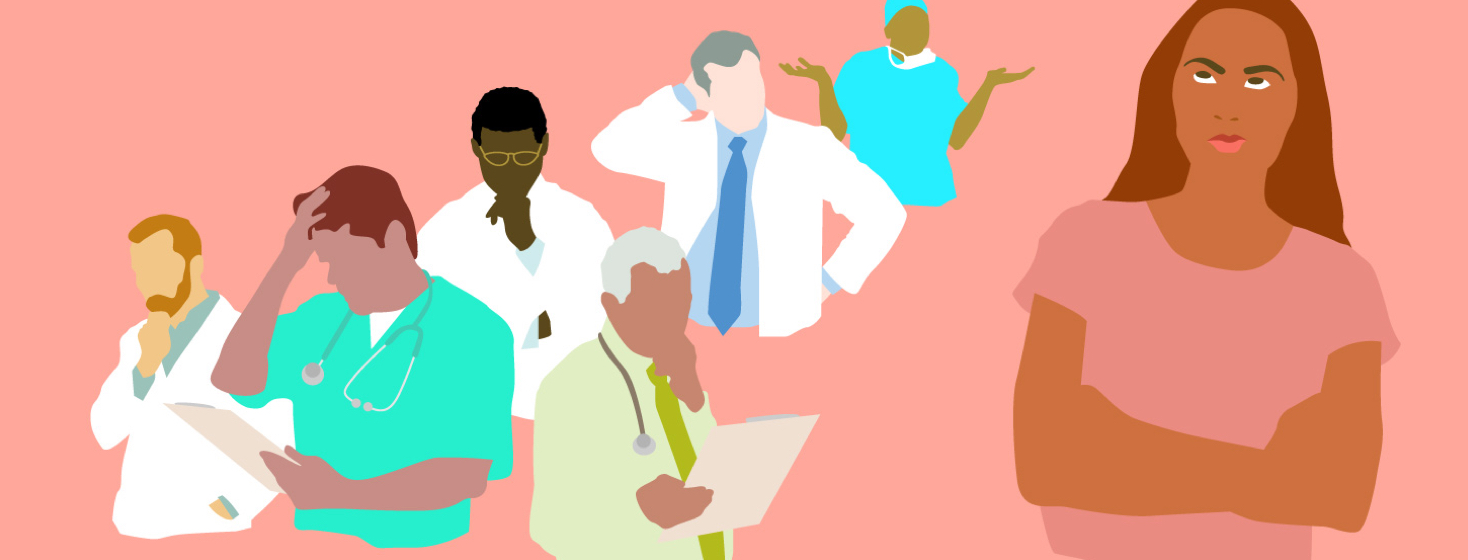Doctors + Insomnia - Who to Ask for Help?
I am someone who has struggled with insomnia for as long as I can remember. Which means, I've talked to a lot of different doctors and health care providers about my sleep disorder.
Early discussions with the pediatrician
I've written before about very vivid memories of my parents talking to my pediatrician about my sleeping struggles:
- How it could take me hours to fall asleep
- How I'd talk or even yell out in my sleep with no memory of this in the morning
- How I slept restlessly, waking up with the blankets and stuffed animals upside-down or even across the room
- How I was always tired, and how it was always difficult to wake up and get going in the morning
And how the suggestions were sparse. I remember the recommendations of warm milk before bed, baths before bed, better bedtime routines, changing my diet – all things that I'm sure my parents tried long before they brought up their concerns to the doctor.
As I got older, the conversation got broader
As a young adult, I assumed this would be a conversation my primary care physician/general physician would manage – that if I needed medication or support with sleeping, they would be the one to provide this. But, that wasn't always the case, especially as additional medical specialists were added to my care team.
When I began regularly working with a gastroenterologist to manage my Crohn's disease, and a rheumatologist to manage my rheumatoid arthritis, and a psychiatrist to manage my depression and anxiety, I found myself being asked about my sleep struggles at every single appointment I went to.
Frustrated by the lack of support
Every provider thought that my inability to sleep well and get restful sleep (aka my struggle with insomnia) was increasing the symptoms I was experiencing from my autoimmune diseases, preventing me from feeling better regardless of condition-specific medications and treatments.
It was hard to explain that I was used to not sleeping and that the not sleeping was, in fact, made less pleasant by the pain and agony I was experiencing from these other conditions during the night.
Overall, I felt like none of them wanted to own the support piece of helping me to navigate my insomnia from a doctor's perspective – and this was incredibly frustrating.
My psychiatrist manages my insomnia the closest
When my sleep disorder is disrupting my life, or when my life is causing additional chaos for my sleep disorder, my psychiatrist is my first call. She is intimately familiar with the medications I take to manage all of my health conditions, and she is also trained to navigate insomnia alongside other sleep disorders.
She is the one I reached out to recently when I realized I needed to go back on prescription medication to sleep, and she's the one who has helped me to navigate which medication has benefits that outweigh negatives and provides me some decent rest.
Sharing updates but keeping expectations low
I still talk about my insomnia with every other doctor I see, but I don't expect anything from them in return for the updates I share. I find that, in general, they like to keep tabs without having to get involved.
Who manages your sleep disorder? Do you have more than one provider involved in the conversation? Do you feel like it's helpful to have options or less constructive to have multiple voices involved? I'd love to hear your experiences below.

Join the conversation